What is Integration of Knowledge? What it has to do with Muslim Minority Countries?
INTRODUCTION
Mohd. Kamal Hassan, the former Rector of International Islamic University Malaysia, is a renowned Islamic scholar of the Muslim world and an ardent supporter of the Islamisation of Knowledge (IOK) movement. He contributed largely to the establishment of International Islamic University Malaysia [IIUM] in 1983 and formation of the Kulliyyah of Islamic Revealed Knowledge and Human Sciences in IIUM in 1989. Once he got appointed as its Rector In1998, he expanded the IOK activities, included it in the university documents, especially in its constitution and made it “the most important mission” of the university. He was born on 26 October 1942 in Pasir Mas, Kelantan, Malaysia. He received his first degree in Islamic Studies from Universiti Malaya (UM) in 1965. He gained his Masters and PhD (1975) degrees from Columbia University, New York. He became the Head of the Department of Usuluddin and Philosophy at UKM in 1979 and acquired his professorship there. He began his career at International Islamic University Malaysia (IIUM) as Shaikh al-Kulliyyah in 1983. He became the first Dean of the Kulliyyah of Islamic Revealed Knowledge and Human Sciences (KIRKHS), IIUM and the Rector of IIUM from 1999 to 2006. The foci of his writings are mainly on philosophy, religion, social issues, and education. Some of his famous works include: The Encyclopaedia of Malaysia: Religions and Beliefs, Islamic Identity Crisis in the Muslim Community in Contemporary Malaysia, Islamic Studies in Contemporary Southeast Asia: General Observations, Al-Islam fi’alam Al-Malaya. His field of specialization is Contemporary Islamic Thought in Southeast Asia and focus of research interest is integration and Islamicisation of contemporary human knowledge. Now he works as a Distinguished Professor,[i] at International Institute of Islamic Thought [ISTAC] Kuala Lumpur, International Islamic University Malaysia.[ii]
I met him at his office in ISTAC, Kuala Lumpur on 6-6-2014, for a long conversation on different categories of Islamicisation of Human Knowledge (IOHK), the various levels of the word “Islamic”, the role of the laymen in the process of IOHK, the Islamicisation of the self, the launching of IOHK discourse in Muslim minority countries, and the universal perspective of Islamicisation movement. The following are excerpts from the interview.
INTERVIEW
Question: First of all, I would like to know about your devotion to Islam. It is observed frequently that the so-called intelligent people and intellectuals are generally influenced and impressed by communism, secularism, modernism, liberalism and so forth. I have learned that you have dedicated your life to promoting the Islamic philosophy of education in contemporary times, especially at International Islamic University Malaysia. Can I know what are the phenomenal motivating factors behind this commitment?
Answer: As for the motivating factors, I think there are several, I would say. Number one is the belief in Islam as a complete way of life which embraces all aspects of human life, and most important is the educational aspect of human life. Unfortunately, our educational system during the colonial period was westernized, and this led to the emergence of two systems, the religious on one hand and the secular on the other. This has produced very serious negative consequences in Muslim societies because the leaders of the Muslim countries during the colonial period and after the colonial period came from the westernized elites and secularized elites, not from the religious elites. Because the religious elites somehow rather did not come on the English language, and their knowledge was confined mainly to the religious sciences. So the secularized and westernized elites became very influential, and they determined the future of Muslim countries. So when we realize this, we have to change the situation and Muslim scholars, since the beginning of this century have been promoting the idea of reform of Muslim education. So that, the westernized and secularized elements could be removed, and Islamic elements could be reinstated. That is the number one, the realization about the importance of education and how our education became westernized.
Number two is my own specialization in Islamic thought in Southeast Asia. As a student of Islam, I have always been very concerned about the secular modernization in Muslim countries, and as a student at University of Malaya and also a student in America, I was involved in Muslim students’ association. Through that association we began to realize the urgent need for transforming our educational system and other systems in the country, the political, economic, cultural, social, media and so on. That is my life as a student in Islamic Revealed Knowledge.
Number three is the International Islamic University which was established in 1983. The purpose of its establishment, among other things, was to end this dichotomy of religious education on the one hand and secular education on the other. IIUM upheld the philosophy of integration of human knowledge (‘Ulum al-Dunya) and religious knowledge (‘Ulum al-DÊn). This has been my preoccupation in the university because this is the aim of the university, and I have to contribute much to the integration and Islamisation process. Our university has the mission of triple ‘I’s, this is to say “Integration”, “Internationalization” and “Islamicisation” and comprehensive excellence. So, this gives us the opportunity, the platform, and the rationale for pursuing the mission of Islamicisation of human knowledge. The abovementioned factors were helpful in doing more in regard to promoting the Islamic philosophy of education in contemporary times.
Question: In one of your recent lectures, I heard you mentioning that now everybody can take part in the endeavour of Islamicisation of Human Knowledge (IOHK).[iii] You mentioned this after describing the different categories of IOHK.[iv] While the majority of ummah remains unaware of this movement, or ignorant of its relevance, how can we expect the involvement of every member of the ummah in this noble intellectual endeavour? Are there any strategic plans to accelerate the popularity of IOHK?
Answer: Well, you referred to my talk at the seminar of the Department of Quran and Sunnah, well, I said that now everybody can participate in the process of Islamicisation, I meant the academic staff in the university, not the whole Muslim community in the world. I mean, in the university, you have the academic staff who are not from the revealed knowledge background, but they are from sciences, and they are from medicine, engineering, architecture, economics and so on. They may not have a sound Islamic knowledge background and many of them may not understand the Quran or the Sunnah when they read them. So they do not have the tools to bring about the Islamicisation of their own disciplines. But when I came up with these four levels of Islamicisation of the Human knowledge from level one, which is doing the normal things but eventually to bring about change, because they do not have the background, that is the least or the lowest necessity. The next stage is level two, where while you are teaching, you may be comparing the Islamic with the non-Islamic, yet you are not making the real changes in your disciplines but at least when you teach, you compare and you may have the desire to bring about the Islamic perspectives later on. Then the third stage is the more desirable stage where you promote the Islamic perspective in teaching and research, and after several years in IIUM, you should be able now to promote Islamic perspectives, going to the Quran, the Sunnah, the Turath (Islamic heritage)[v]. The fourth is the highest level, where you become innovative, you reconstruct your area based on Islamic principles, so it is new knowledge, new construction, new approaches, and new discoveries, new innovations, all made on the basis of Islamic values, principles and worldviews. When you have these four levels, the one at the bottom will try to move up to number two, number two should move up to number three, and number three will try to move up. Here, everybody has a place, and we cannot say only people who know Quran and Sunnah can do Islamicisation. There are people, who may not know the Quran very well, but they are critical of the conventional perspectives, which are not in harmony with Islamic principles, and they can bring that about in their classrooms, and that is also good.
But you have to go higher, so in other words, it is a progressive evolution rather than just making it an imposition as you must do it in this way. Otherwise, it is not Islamic because the word Islamic also has several levels. The word Islamic itself can mean different levels because the highest is when everything is in conformity with Islamic values and norms, but being Islamic can also mean that you are doing things which are good and they are not contradicting Islam; that is also Islamic but not the highest. The word Islamic also means that you are doing something related to Islam, not very important, but related to Islam, that is also called Islamic. So, in other words, even the word Islamic and the way Prophet (s.a.w.) also taught us in Hadith Jibril, which starts with Islam, Iman, and Ihsan. So, there is a lowest level as just Kalimah Shahadah, then Iman, and after that Ihsan. So, one can progress, which is why I mentioned that nobody should give excuses that he/she cannot do Islamicisation.
Now, as for the common people, this is not easy because they are not from academia, and do not understand the problems of Western knowledge or the knowledge in the social sciences, humanities, or art sciences because they do not study them at universities. So, they are not in a position to bring about these changes. They should try to improve their knowledge of the Quran, Sunnah, sirah (Prophet’s biography), and Islamic civilization. And now, al-hamdulillah, for example, in the Malaysian context, we have television series which are based on Islamic themes, we also have institutions providing Islamic information like IKIM (Institut Kefahaman Islam Malaysia) or Institute of Islamic understanding.[vi] We also have JAKIM (Jabatan Kemajuan Islam Malaysia) or Department of Islamic Development Malaysia.[vii] There is the Religious division in the Prime Minister’s Department, we have also Selangor Religious Affairs Counsel, and then you have many Muslim NGOs and websites where they can go. So, in other words, even the laymen can get access to the knowledge of Islam, in sha Allah.
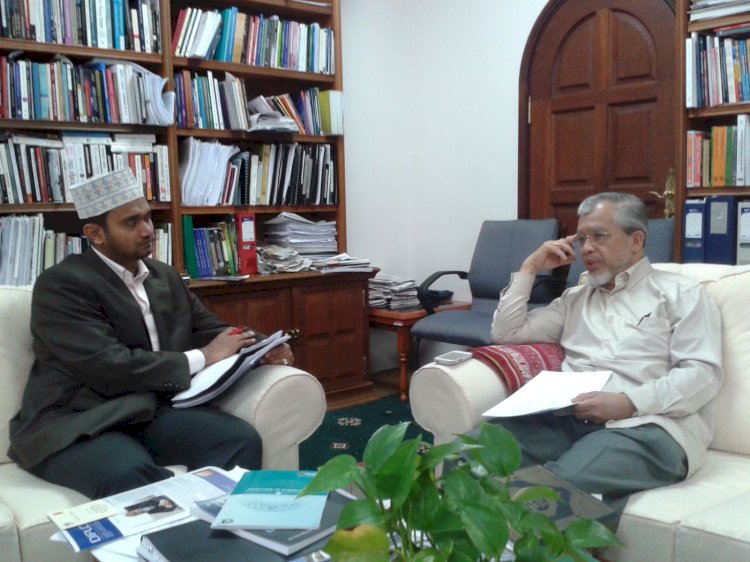
Question: From your description, what I understand is, first, Isamization of human knowledge came as an intellectual discovery, then it proceeded to the levels of serious debates, which are now in progress. Now, as you mentioned, there are different levels and categories, which signify there is no excuse for laymen. The role of laypeople in IOHK is to put efforts into increasing their knowledge about Islam and to support those doing IOHK. Is it what you meant?
Answer: Exactly. Now, the way we define the Islamicisation of the Human Knowledge is not quite the same as some people who talk about Islamisation of Knowledge, their focus is more on knowledge and disciplines which are being produced and forgetting about the self and the man. In our conception, the Islamicisation proceeds from the personality, the character of the academic. So, when we talk about Islamicising Human knowledge, we always have the academic and non-academic, we call it Islamicisation of the self[viii] and Human knowledge. So, there is an intellectual change and also a personal change; one has to improve himself spiritually, intellectually, emotionally; that is the part of Islamicisation of knowledge. Because you get the knowledge from Allah (s.w.t.) and knowledge from Prophet (s.a.w) and with that kind of knowledge we can improve ourselves to become better servants of Allah (s.w.t.). So even the laymen cannot say it is not my responsibility, because our definition of Islamicisation of Human knowledge includes the Islamicisation of self.
Question: Now my question here is, since majority of the ummah remains unaware of this movement, how can we make some strategic plans in order to accelerate the popularity of Islamicisation of human knowledge?
Answer: Well, you have to use communication media; that is number one. Increase the websites, and now, of course, there are many websites. Still they are not called Islamicisation of Human Knowledge websites. The IIIT website is doing great in this regard, so it is through IIIT websites that people can go through, but it is not enough. So, other organizations in the world can also highlight the IOHK through the internet, which is one channel. The other channel is to go through the OIC; I think they have some organizations at OIC which are related to knowledge. But they have not highlighted Islamisation of Knowledge. They are more concerned with spreading science and technology in the Muslim world. But I think if the ministers of education of Muslim countries could focus on the need to reform education and use the name Islamicisation, then I think, it would become popular. The thing is, many efforts are ongoing which may have many things in common, but not using the same label, even in Saudi Arabia, the term Islamicisation is not quite used, I think they talk more on Ta’sil al-Islami li al-‘Ulum, not really Aslamat al-Ma’rifah al-Bashariyyah and in Sudan they use the word Islam wa- al-Ma’rifah and for IIIT they use the word Aslamat al-Ma’rifah, you can use also the word Takamul al-Ma’rifah, that is integration i.e., epistemological integration. But the underlying concern is, there is a need for reform and integration. Human knowledge of the world has to be integrated with faith, with Iman in Tawhid and with the worldview of Quran and values and so on. As for the name, we do not have to insist while the process and content are important.
Question: While I was taking the course of Issues in Islamicisation of Knowledge, my teacher explained to us that your aim of IOHK is to bring development in Muslim countries. Is there any link between IOHK and development?
Answer: Well, of course, the development here refers to all efforts to improve the conditions of Muslim society; economically, politically, socially, culturally, educationally, scientifically, and technologically. And so far, the concept of development that has been applied in Muslim countries is Western, which does not integrate the factors of morality, ethics, spirituality and faith. So Islamicisation of human knowledge also means that when we apply it to development, it has to address all the human needs. Human is not just a mind or body, but it has a soul. Therefore, the spiritual needs of man will have to be addressed.[ix] But development in the world, somehow, does not address the spiritual needs. It addresses only the material needs. But because of the secular worldview, it does not give much attention to the spiritual development of man. So, Islamicisation of human knowledge, when applied to development, means development is based upon the development of a holistic person and the person represents the unity of body, soul, and mind.
Question: We agree that IOHK is an important agenda of the ummah. How do we launch this movement in Muslim minority countries while maintaining harmony with people of other communities and religions? In a minority situation, what should be the objectives of IOHK? Can we maintain the same name IOHK?
Answer: Okay, I had this experience in the Philippines, about 20 years ago when I talked about the Islamicisation of Knowledge. That time some of the Philippine Muslim leaders asked me, “What does this have to do with us?”. I mentioned that the education of the Muslim generation is very important, especially in minority areas. If we continue to educate the younger generation based on the secular worldview, they will become secular leaders. So, Islmization of Human Knowledge is crucial; it is about providing holistic leadership, Islamic leadership, and most importantly, an Islamic identity. In Muslim minority countries, you need to survive, and you survive with economic tools, political instruments or with scientific achievements or scientific education. But if you do not have your own identity then you will be lost. After a while, you will not be defending the rights of your people because you have forgotten your identity and you are absorbed in the identity of the majority. So, Islamicisation of the self the knowledge is important means for strengthening the Islamic identity without causing any problems for the majority. As a Muslim minority, you have to live in peace and harmony with the majority. Yes, you have to maintain your identity, having your own schools but you are living in a world in which the non-Muslims are in control. So, you have to have a good relationship with them. Definitely, if they force you or throw you out, the relationship will not be peaceful and harmonious. But we have to inculcate the Islamic consciousness in the minority to become strong, spiritually number one, intellectually number two, physically number three, scientifically and so on. So, you cannot only contribute to the development of the minority; the community will also present a good image of Islam to the majority.
Question: What about the name “Islamicisation of Human Knowledge”? I mean, if we come up with this idea, especially in the background of negative stereotypes of Islamophobia, which will make some thoughts of untrue objectives of this movement for the so-called political change?
Answer: Well, in that case, you can use integration of religious knowledge with worldly knowledge. Worldly knowledge is essential, such as economics, science, technology, but where we integrate, we also bring faith in God, faith in the books of Allah, faith in the Prophets and so on. So that is the Iman aspect and the religious knowledge aspect. But the other aspect is worldly knowledge aspect. So, the word integration is perhaps better.
Question: There is an argument that IOHK is an exclusivist project, which shows its concerns for Muslims alone. Is there any truth in this argument? Or is there any universal perspective for IOHK?
Answer: Well, of course, it is essentially a universal project or concern. As human reason is entrusted by Allah (s.w.t.), human reason is a creation of God. If people, non-Muslims throughout the world, can accept the belief that human reason is a God-given gift, then the next question is, “how do you use that gift?” So, that gift should be used in a way that the Creator wants it to be used. In other words, it should be used for islah, not ifsad, for goodness, not for munkar, for khayr, not for sharr, for husn, not for qubh, for ma’ruf, not for munkar. The human knowledge which is not integrated with iman or whose reason is divorced from divine guidance can also produce knowledge which can be harmful for people. We have seen today the absence of these divine principles in the development of human knowledge; we have seen examples of many crises; scientific, technological, environmental, social crises, economic crises, political crises, and moral crises, all because human reason has divorced itself from the will of Creator. So, in order to overcome these crises in the world, we need to bring the human reason in harmony with the divine will, with God’s will. To that extent, it is a universal concern. But Islamicisation of the human knowledge developed in the last fifty years is more concerned with putting the Muslim houses in order. Because we are Muslims and Muslims are in bad shape, they need to reform. Therefore, the focus is on the reform of Muslim institutions, Muslim organizations, Muslim education, Muslim politics and so on. But it does not have to stop at the level of Muslim community and it has to go beyond the Muslim community. But how to make it understandable, acceptable and people are willing to bring the human mind back to the will of God varies from one religious community to another. Because how you define God is not necessarily the same as the Tawhid, and what is the plan of God, in case of Islam it is quite clear; you have the Shari’ah, aqidah, akhlaq, economic and legal systems and so on. So, the will of Allah is expressed in the Quran, in the Sunnah, and in the works of ulama in the clear terms. But there are religions that may think that God is not interested in this kind of knowledge reform. They will not be able to appreciate this. But if you argue with them, the human mind is a gift from God, and that gift has to be used as an amanah, trust from God. Therefore, if you do not observe the trust, then you will be punished by God or you will face many crises in human life.
Question: As understood from your comments, misunderstanding IOHK as an exclusivist agenda is based on the present stage in which we are engaged to improve the Muslim situation. But the reality is, it is not going to stop here, but will proceed beyond to a universal level. Is this right?
Answer: Yes, agreed. So, it is not exclusivist, but it appears to be so because at the moment we are bothered by Muslim situation, and indeed it will continue to a universal level.
(This paper was initially published The Muslim World League Journal 2015 May. Vol 43 no 1, pp. 38-45.)
(Sayyed Mohamed Muhsin is an assistant professor of Islamic jurisprudence at International Islamic University (IIUM), Kuala Lumpur. He also serves as Editor-in-Chief of Islamonweb-English)
[i] Distinguished professors in Malaysia are state-owned icons, as their contributions transcend the institutions they represent.
[ii] Biographical information about Professor Mohd Kamal Hassan has been retrieved from the website http://www.icce.com.my/ihat/tan-sri-prof-dr-muhammad-kamal-hassan/ on 7-6-2014 and the book of Dr. MumtazAli, details of book are shown below.
[iii]Professor Kamal Hassan preferred to use Islamicization of Human Knowledge (IOHK) instead of Islamization of Knowledge (IOK). He has come up with certain convincing arguments in favour of his preference.
He uses Islamicization by giving the main reason “the term “Islamization” is generally used in the sense of a process of conversion to Islam, whereas the term “Islamicisation” generally denotes a process of conforming to Islamic principles or being in harmony with the teachings of Islam. Hence, knowledge, if properly understood, is not meant to undergo religious conversion. The aim is to bring and fit modern knowledge into the worldview of Islam, not its conversion.” (Mohd. Kamal Hassan, [2013], Islamicisation of Human Knowledge as the Most Important Mission of IIUM, Unpublished paper, International Islamic University, Malaysia [IIUM]. p.43-44.
He uses ‘Human Knowledge’ instead of Knowledge because “We have to admit that the expression ‘Islamicisation of Knowledge’ is vague, confusing and controversial, because if ‘knowledge’ is the equivalent of ‘al-ÑIlm’ as used in the Quran, then that knowledge represents the true and highest kind of knowledge since it refers primarily to Divine Knowledge or Revelation [wahy] conveyed to His Messengers for the spiritual and moral guidance of mankind. It would be absurd and heretical to suggest that Divine Knowledge be subject to Islamicisation! This the reason why we have insisted on using the expression that is in IIUM’s Constitution, namely ‘Islamicisation of Human Knowledge’, as distinct from Divine Knowledge or knowledge directly revealed by Allah [S.W.T.], because it is this category of knowledge that is subject to paradigmatic changes, susceptible to revision, correction and amendments, and contain elements which are not in conformity, or in harmony, with the Islamic creed of Tawhid, Divine Law, and Revelation-based ethics.” (Mohd. Kamal Hassan, [2013], Islamicisation of Human Knowledge as the Most Important Mission of IIUM, Unpublished paper, International Islamic University, Malaysia [IIUM].P.35).
[iv]Professor Kamal Hassan’s Key Note Address in the Seminar on Categories of Islamicisation of Human Knowledge Efforts in IIUM (SCIE2013) organized by the Department of Qur’an and Sunnah Studies, IIUM, in collaboration with CENTRIS (Centre For Islamicisation)& INHART (International Institute for Halah Research and Training) on Friday, 13th December, 2013, IIUM Gombak Campus.
[v] The scope of Islamic intellectual heritage in the domain of IOHK is another significant aspect of debates in the last few years. It does not fit logically to use the phrase “Islamicisation of religious sciences or Islamic sciences” because it has profound roots in Islamic background. At this juncture, Professor Kamal Hassan puts forth the idea of using the new term “Relevantization” or “Contextualization” of religious sciences. He describes further its connotations as Islah, Tajdid, Ijtihad, Ihya, Tashih, Iadat al-Nazar, Bina Jadid. The achievement of Relevantization would be fulfilled by the integration of beneficial ideas, methods of research, analyses, perspectives or theories from the natural sciences/ applied sciences/social sciences/human sciences etc. Professor Kamal Hassan elaborates, “In this respect, the term “relevantisation” is to emphasize the necessity of I.R.K. disciplines and academics to keep abreast with contemporary challenges and to possess the intellectual and doctrinal capability- achieved through the methodology of ijtihad [exercise of sound juristic reasoning] and the maqasid al-shariah [objectives of Divine Law] – in order to address adequately the issues and problems of contemporary individual, society, state, culture and civilization.” (Mohd. Kamal Hassan, [2013], “The Necessity of Relevantisation [Islah, Tajdid, Ijtihad, Ihya, Tashih, Iadat al-Nazar, Bina Jadid] of Islamic Revealed Knowledge Disciplines”, Unpublished paper presented in Half-Day seminar on Relevantization of Islamic Revealed Knowledge Disciplines, organized by the Department of Usul Al-Ddin and Comparative Religion, KIRKHS, IIUM, Kuala Lumpur, Malaysia.
[vi]For more details, http://www.ikim.gov.my/index.php/ms/
[vii] For more details, http://www.islam.gov.my/en
[viii]Professor Kamal Hassan draws attention to another important aspect of IOHK that is related to the character and attitude of Islamizer; he calls it “Islamicization of the self”. It signifies to the enhancement of the character, attitude and work morals of the students, scholars and administration staff of the university based on the teachings of the Quran and the Sunnah. He describes “All individuals “living and working in national or international systems, whose paradigm of quality and professional excellence does not give due recognition or proper place to the centrality of spiritual and moral principles and values based upon Divine revelation, have to grapple with the challenge of accommodating the dominant norms and key performance indicators of their employers, without sacrificing their fundamental religious beliefs and spiritual integrity.” (Mohd. Kamal Hassan, [2013], Islamicisation of Human Knowledge as the Most Important Mission of IIUM, Unpublished paper, International Islamic University, Malaysia [IIUM]. p.56. He also calls for actions for recovery of the ‘diseases of the heart’, such as the love of the world, greed, envy, rancor, ostentation, seeking human recognition or status, arrogance, pride, egoism, self-glorification, looking down on others, conceit, self-delusion, etc. (Ibid, 57)
[ix] According to Professor Kamal Hassan, the objectives of the I.O.H.K. mission are two important achievements. They are:
- The liberation of the Muslim Ummah from its internal crisis, backwardness, lethargy, malaise and predicaments;
- The realization of a universal, balanced and integrated civilization based upon the harmony of Divine revelation and human reason which upholds the principles of achieving “goodness in this world” [Hasanah fi al-Dunya] and “goodness in the Hereafter” [Hasanah fi al-Akhirah]. It is one of the religious duties of an Islamic university to work towards achieving these ultimate objectives. (Mohd. Kamal Hassan, [2013], Islamicisation of Human Knowledge as the Most Important Mission of IIUM, Unpublished paper, International Islamic University, Malaysia [IIUM]. p.65.)
Disclaimer
The views expressed in this article are the author’s own and do not necessarily mirror Islamonweb’s editorial stance.

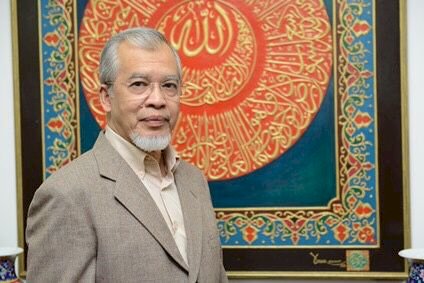


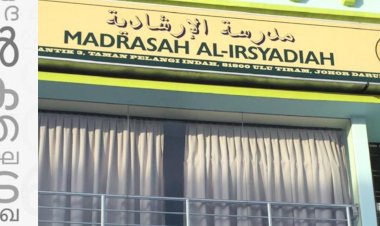
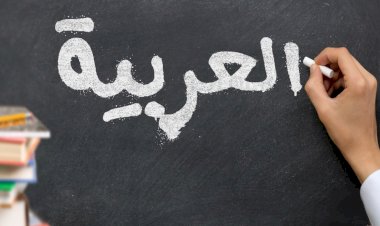
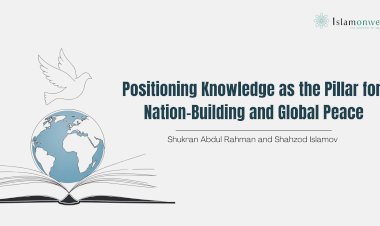
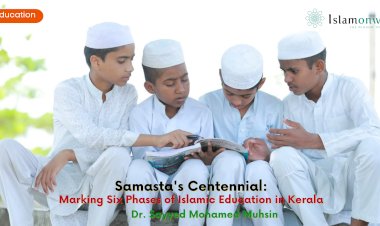
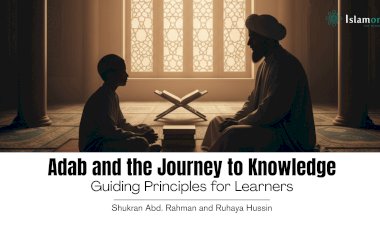
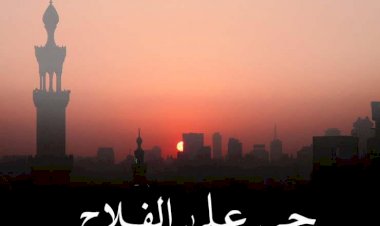














Leave A Comment